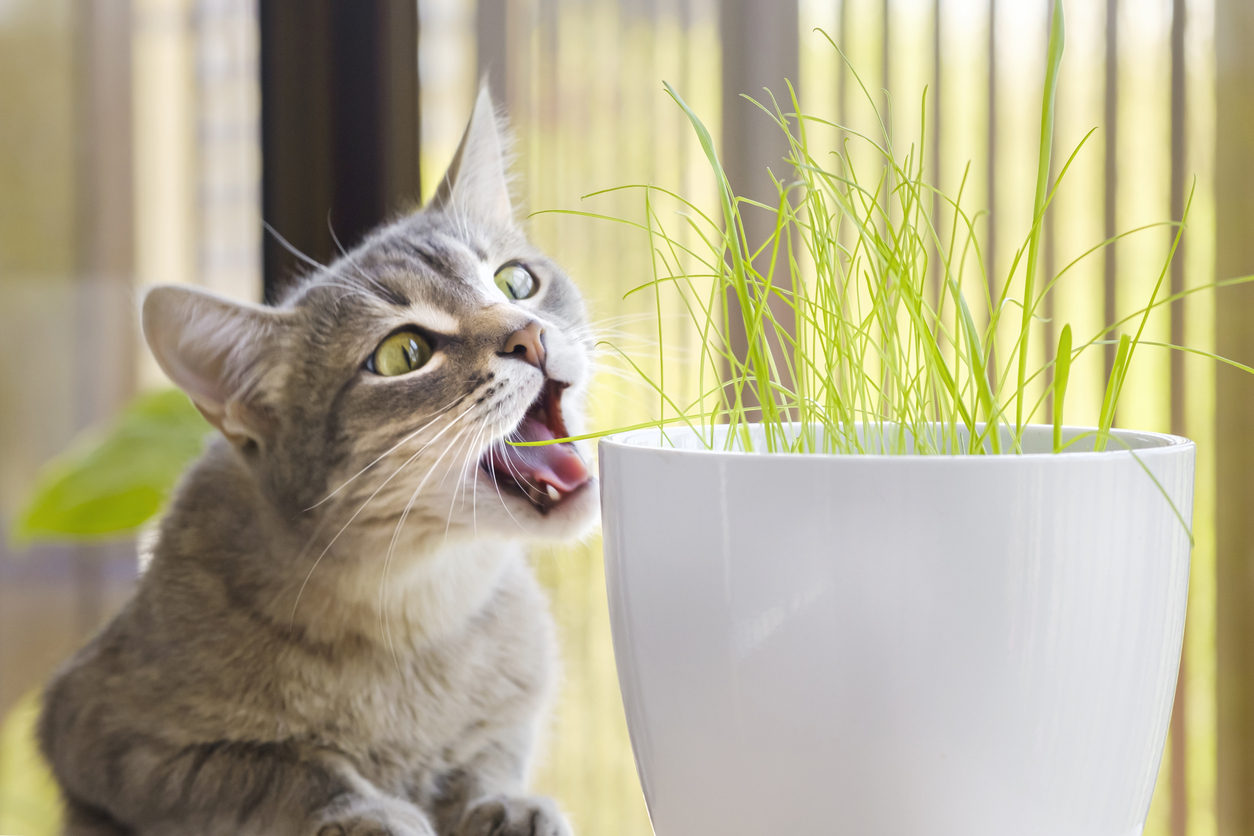Cats, our enigmatic and beloved companions, often exhibit behaviors that leave us puzzled. One such behavior is their love for eating grass. While it may seem a little weird, this activity is rooted in various instinctual, physiological, and psychological factors. In this Pawzine article, we dive into the reasons behind this common feline behavior, offering a comprehensive understanding supported by scientific insights and expert opinions.
Natural Instincts and Evolutionary Background
The Ancestral Diet of Cats
Cats are obligate carnivores, meaning their diet in the wild primarily consists of meat. However, their wild ancestors also consumed plant matter occasionally. This consumption was often incidental, occurring when cats ingested the stomach contents of their prey, which typically included herbivorous animals. This behavior has trickled down through generations, influencing domestic cats to seek out plant matter, such as grass.
Instinctual Behavior
From an evolutionary standpoint, cats are driven by instincts that have been honed over millennia. One such instinct is to seek out vegetation. This could serve various purposes, including aiding in digestion and providing nutrients that may be missing from a strictly carnivorous diet. Moreover, chewing on grass may help to expel fur balls that accumulate from grooming, thus ensuring their digestive systems remain clear.
Physiological Benefits of Grass Consumption
Aiding Digestion
Grass acts as a natural laxative, helping cats to pass undigested food and fur balls more easily. The fibrous texture of grass stimulates muscle contractions in the digestive tract, promoting regular bowel movements. This is particularly important for indoor cats that might suffer from constipation due to a less varied diet.
Vomiting and Fur Ball Expulsion
Another significant reason cats consume grass is to induce vomiting. The ingestion of grass can trigger a gag reflex, helping cats to expel fur balls and other indigestible materials from their stomachs. This self-regulating behavior ensures that their digestive system remains unblocked and functions efficiently.
Psychological and Behavioral Factors
Stress Relief and Behavioral Enrichment
For many cats, eating grass can be a form of behavioral enrichment. Indoor cats, in particular, may engage in this activity to relieve stress or boredom. The texture and taste of grass offer sensory stimulation, which can be a soothing experience for them. Additionally, grass-eating can be part of a cat’s play routine, providing both mental and physical engagement.
Exploring the Environment
Cats are naturally curious creatures. Eating grass allows them to explore and interact with their environment. This behavior is often observed in outdoor cats who have access to various types of vegetation. By consuming grass, they are essentially investigating their surroundings and satisfying their innate curiosity.
Nutritional Considerations
Chlorophyll and Micronutrients
Grass contains chlorophyll, which has been shown to have detoxifying properties. While cats derive most of their nutrition from meat, the occasional ingestion of grass can provide additional micronutrients that may benefit their overall health. These include vitamins such as folic acid, which plays a crucial role in the production of hemoglobin.
Dietary Fiber
The fiber found in grass can help regulate a cat’s digestive system. While commercial cat foods are formulated to meet their dietary needs, the additional fiber from grass can aid in preventing digestive issues and enhancing gut health.
Addressing Common Concerns
Potential Risks and Safety Measures
While grass-eating is generally safe for cats, it is important to ensure that the grass they consume is free from pesticides, herbicides, and other harmful chemicals. Pet owners should provide clean, pesticide-free grass or consider growing their own cat grass at home. Additionally, certain houseplants can be toxic to cats, so it is crucial to identify and remove any hazardous plants from their environment.
When to Consult a Veterinarian
If a cat exhibits excessive grass-eating or shows signs of distress, such as frequent vomiting or changes in appetite, it is advisable to consult a veterinarian. These behaviors could indicate underlying health issues that require professional attention.
We know it can be slightly freaky watching your kitteh munch grass, so understanding why they do it, involves considering a combination of natural instincts, physiological benefits, psychological factors, and nutritional considerations. By acknowledging and respecting this behavior, we as cat owners can better cater to their needs and ensure their well-being.
Yours in Paws,
The PawPaw Team

